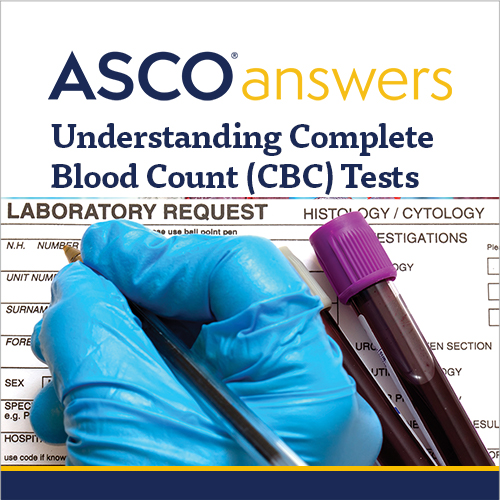Some kinds of cancer and cancer treatment can cause bleeding problems. Bleeding problems can also be caused by another condition that is not cancer. Cancer and cancer treatment can make existing bleeding problems worse. Bleeding problems can also affect the type of treatment you receive.
Normal blood clotting is called coagulation. It is a complex process that involves certain types of blood cells and proteins. The blood cells are small cells called platelets. The proteins involved in clotting are called clotting factors or coagulation factors.
Platelets and coagulation factors act together to heal broken blood vessels. This helps control bleeding. A blood disorder occurs when:
-
Clotting factors are missing or damaged
-
The blood has too few platelets
-
Platelets do not work correctly
What are the signs and symptoms of bleeding problems?
People with bleeding disorders may have the following signs and symptoms:
-
Cuts that bleed too much or for too long
-
Unexpected or sudden bruising
-
Small purple or red spots under the skin, called petechiae
-
Blood in vomit that can look like coffee grounds
-
Black or bloody bowel movements
-
Red or pink urine
-
Dizziness, headaches, or changes in vision
-
Joint pain
-
Gum or nose bleeds
-
Menstrual periods that are heavier or longer than usual
Talk with your health care team about any symptoms of bleeding problems that you have. Be sure to report new symptoms or a change in your symptoms. This will help your health care team better understand the problem and how to treat it. Relieving side effects is an important part of cancer care and treatment. This is called palliative care or supportive care. It helps meet the physical, emotional, and social needs of the person with cancer.
How are bleeding problems diagnosed?
To diagnose bleeding problems, your health care team will review your medical history, perform a physical exam, and take a sample of your blood. The sample may be used for several blood tests, including:
-
Tests to check the speed of blood clotting
-
Tests to check for blood protein deficiencies
What causes bleeding problems when you have cancer?
Bleeding problems can be caused by cancer or cancer treatment. A bleeding problem can also have a cause that is not related to cancer.
Bleeding problems can be caused by:
-
Inherited disorders, like hemophilia and von Willebrand's disease. With hemophilia, blood does not clot normally. With von Willebrand's disease, clotting factors are missing or do not work well.
-
A low level of vitamin K
-
Cancer that begins in or spreads to the liver
-
Other liver disorders, including hepatitis and cirrhosis
-
Long-term use of powerful antibiotics or anticoagulants, which is medication that thins the blood
-
Some over-the-counter medications, like non-steroidal anti-inflammatory drugs (NSAIDs), aspirin, and medications that include NSAIDs or aspirin can cause bleeding problems or make them worse
-
Drugs called angiogenesis inhibitors, which prevent the growth and development of new blood vessels to treat certain types of cancer
-
Thrombocytopenia or a low platelet count
-
Anemia, which is an unusually low level of red blood cells
-
Other disorders unrelated to cancer
How are bleeding problems treated when you have cancer?
Whenever possible, the health care team will treat the underlying cause, such as cancer or liver disease, to stop the bleeding problem. Additional treatments may include:
-
Vitamin K injections
-
Drugs that help the blood clot
-
Blood plasma or platelet transfusions
-
Other medications to treat platelet problems, including hydroxyurea (Droxia, Hydrea) and oprelvekin (Neumega)
Questions to ask the health care team
Consider asking your health care team the following questions about bleeding problems:
-
Does my cancer or cancer treatment put me at risk for developing bleeding problems?
-
What signs of bleeding problems should I watch for? Which ones should I tell you about right away?
-
If a bleeding problem occurs after hours, what should I do?
-
What is causing my bleeding problems?
-
How can my bleeding problems be treated?
-
Will I need transfusions? How often?
-
If I need mental health support with coping with this problem, who can I talk with?
Related Resources
ASCO Answers Fact Sheet: Understanding Blood Tests (PDF)

 Download ASCO's free 1-page (front and back) fact sheet on
Download ASCO's free 1-page (front and back) fact sheet on